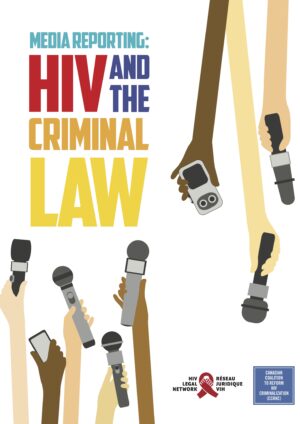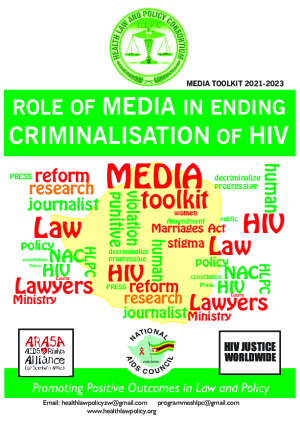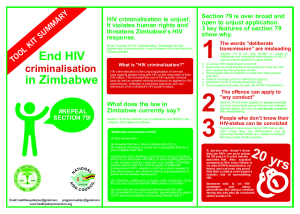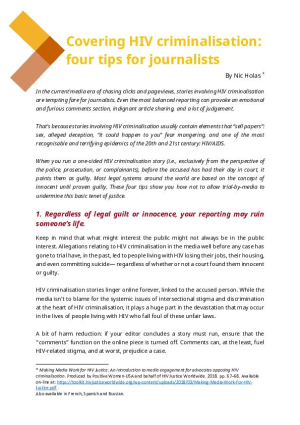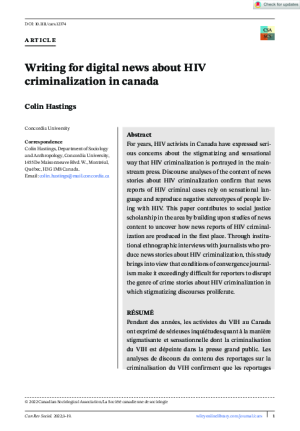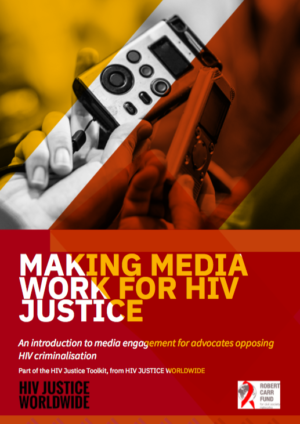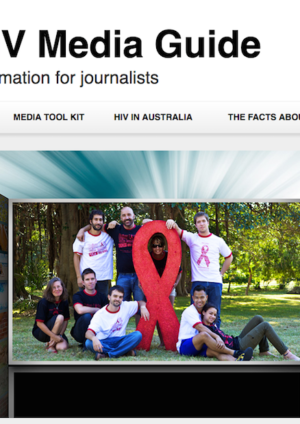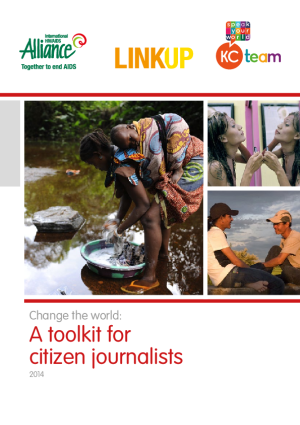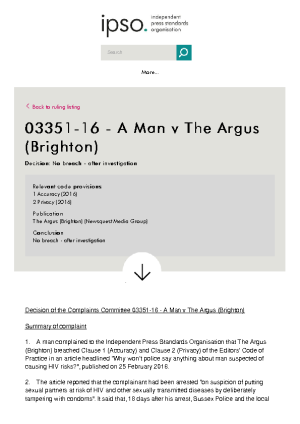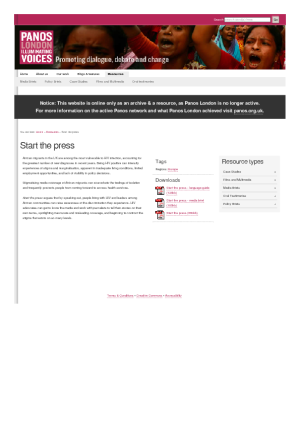This guide is an evidence-based resource to assist journalists in Canada in reporting responsibly and accurately about alleged HIV non-disclosure and resulting criminal cases.
Working with the Media
HIV-related prosecutions frequently attract a lot of media attention. The following resources provide insight into developing better media reporting.
Role of Media in Ending Criminalisation of HIV – Media Toolkit 2021-2023
The purpose of this media toolkit is to help health journalists and advocates understand HIV criminalisation in Zimbabwe and adequately engage with the various facets of arguments and viewpoints on the subject matter. Journalists and advocates are key stakeholders in promoting public health goals and the advancement of rights and freedoms of those infected and affected by HIV.
End HIV Criminalisation in Zimbabwe
Quick media toolkit summary on why HIV criminalisation law should be reformed in Zimbabwe.
Covering HIV criminalisation: four tips for journalists
Four tips for journalists to help them cover criminalisation cases in a non-stigmatising and non-discriminatory way.
Writing for digital news about HIV criminalization in Canada
This study examines the production of Canadian news media stories about HIV criminalization. Through institutional ethnographic interviews with journalists who produce news stories about HIV criminalization, this study brings into view that conditions of convergence journalism make it exceedingly difficult for reporters to disrupt the genre of crime stories about HIV criminalization in which stigmatizing discourses proliferate.
Making Media Work for HIV Justice: An introduction to media engagement for advocates opposing HIV criminalisation
The purpose of this critical media toolkit is to inform and equip global grassroots advocates who are engaged in media response to HIV criminalisation–and to demystify the practice of working with, and through, media to change the conversation around criminalisation. The toolkit provides an introduction to the topic of HIV criminalisation and the importance of engagement with media to change narratives around this unjust practice. It also features a number of case studies providing examples of how media played a significant role in the outcome, or the impetus, of HIV criminalisation advocacy. In addition, the toolkit includes reporting tips for journalists, designed to educate writers and media makers around the nuances of HIV criminalisation, and the harms of inaccurate and stigmatising coverage.
The HIV Media Guide
Provides journalists with tools to ensure that media reports on HIV are accurate and sensitive. With tips for best practice, links to useful resources and a section on HIV criminalisation.
Change the world: A toolkit for citizen journalists
This training manual helps lay the foundation for civil society advocates to become citizen journalists. It brings together journalism skills and advocacy goals to help Key Correspondents share their perspectives and experience with decision makers and wider audiences to influence the discourse around HIV and related issues. The manual introduces the basic components of journalism; so correspondents can write their stories with accuracy and using a journalistic approach to improve the potential of being published in mainstream media. It is a ‘how to’ guide for individual study.
Decision of the Complaints Committee 03351-16 – A Man v The Argus (Brighton)
Press complaints ruling about whether or not The Argus newspaper in the UK was right publishing the name of man arrested “on suspicion of putting sexual partners at risk of HIV” before he was charged. The complaint was not upheld.
Constructing an “HIV-Killer”: HIV Non-Disclosure and the Techniques of Vilification
An analysis of the notorious Canadian criminal case of Johnson Aziga. The article outlines five key ways that people living with HIV who do not disclose their status to a sexual partner are characterised as dangerous by both the criminal justice system and the media.
Start the Press: How African communities in the UK can work with the media to confront HIV stigma
Argues that by speaking out, people with HIV and leaders among African communities can raise awareness of the discrimination they experience. Suggests HIV advocates can get to know the media and work with journalists to tell their stories on their own terms, spotlighting inaccurate and misleading coverage and targeting stigma. Includes language guide.
